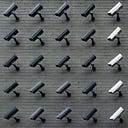The Incredible Shrinking World: Life with Rejection Sensitive Dysphoria

I plopped down onto the faded green couch, gulped some air into my quaking lungs, and started talking.
“Hey, I wanted to talk to you about this thing I read about. It’s called… ”
“Oh, yea?” my therapist interrupted, “and where did you read about this … thing? Was it a peer reviewed academic journal?” His sneer and cocked eyebrow suggested he already knew the answers.
“Well… no,” I stumbled, my body deflating, “it was in this … online magazine called ADDitude.”
“Oh, an online magazine!” he bellowed.
“It’s called Rejection Sensitive Dysphoria,” I continued, the words now limping out of my mouth. “It describes how some people with ADHD feel, like, really bad anytime they make a mistake.”
“How is that unique?” His armchair creaked as he shifted to a more dominant pose. “Who doesn’t feel bad when they make a mistake?”
I told him how it was much more than that. Like for instance how my face was still burning from the shame I felt stumbling on the steps outside his office right before I came in. My brain had miscalculated and snagged the toe of my left shoe on the nosing of the next step. It was a small stumble, but my face was still flush from it. Micro-droplets of condensation oozed out of the pores above my lip, on my hands, and under my armpits. Not a torrent, but enough.
“You know, have you looked into Cognitive Behavioral Therapy? It’s really quite succ-”
“I’ve tried it before and it’s never really worked,” I interrupted. I know it works for some people, but I was looking for something else. “The article suggested a couple of specific medications that I was thinking we could try out.”
“Yes, well, first to the matter of CBT,” he pontificated, “For some people, it’s like an accent. Let’s say you’re learning a new language. No matter how many vocabulary words you memorize and sentence structures you master, you’ll never lose that original accent. It stays with you forever.”
He let that sink in a little before continuing. “If you want to try out new drugs or whatever, that’s fine. But you won’t do it with me. What we’re doing is working and it’s my professional opinion that changing anything right now would be disastrous.”
As much as I wanted to push back and advocate for myself, I needed the regular access to medication my psychiatrist provided. I couldn’t just tell him to fuck off and then ghost him. I need my pills. Going even just a day without my medication means intense brain zaps and the inability to function on even the most basic level. It’s the Faustian bargain someone like me makes when they gobble down handfuls of psychotropic drugs on a daily basis. Thankfully our meetings are only 15 minutes long, so I snatched my paper scripts and got the hell out of there ASAP.
In the car I reflected on what had just happened. The meeting that was supposed to provide clarity and guidance on my RSD ended up triggering it instead. I breathed deeply, trying to create space for the maw of shame now threatening to crack open my solar plexus. I drove home in silence.
ADDitude magazine describes Rejection Sensitive Dysphoria as the
“extreme emotional sensitivity and pain triggered by the perception that a person has been rejected or criticized by important people in their life. It may also be triggered by a sense of falling short — failing to meet their own high standards or others’ expectations.”
When I read that description, I can understand why someone like my psychiatrist didn’t get on board. Sometimes I don’t think it’s “real.” All I know is that it perfectly describes how I feel a lot of the time. Like my psychiatrist said, most people feel some sort of emotional pain when they’re rejected. It’s normal. But RSD takes that normal response and magnifies it, stuffing fist-fulls of steroids down its throat before letting it loose upon the internal world.
Rejection Sensitive Dysphoria has been with me as long as I can remember. I never wanted anyone to come over because I was consumed with the notion that they would hate me and my house and my food and my parents and my games and my toys. I cried at birthday parties because I was afraid whatever gift I was giving wasn’t good enough. It wasn’t every single time, but it happened enough. As I got older, I turned to drugs and alcohol to keep the shame at bay. Now, avoiding RSD means avoiding most social situations.
My brain remains in a constant state of hyper-vigilance. Every conversation or human interaction I take part in occurs against a backdrop of furious cognitive activity:
Where am I?
What are the behavioral norms for this space?
Who else is here?
Are they close enough to hear me?
How will that impact what I say, if at all?
What do I know about the person(s) I’m talking to?
What are their likes/dislikes?
Their prejudices and biases?
What’s my history with this person?
What future do I want with this person?
How loud or quiet should I be?
How fast or slowly should I speak? Do I gesticulate?
What mood do they look like they’re in?
What do their body language, their face, the tone of their voice, tell me about how I should proceed?
I use this information not to lie, but to help manage. And then when the interaction is over, I do the whole thing in reverse. How did I fall short of that goal? And what can I learn from what just happened to ensure I don’t repeat any mistakes in any future conversations?
Brief side note: the fact that RSD occurs in tandem with ADHD is truly diabolical. The two bicker back and forth in a cruel dialectic. ADHD shouts out something “random” (because that’s what ADHD does) and RSD swoops in for the censure (because that’s what it does). Rinse, wash, repeat.
These hectic decision tree analyses are always humming in the background, eating up precious resources that would be better spent elsewhere like, say, trying to enjoy the moment. It’s no wonder I don’t have much of a social life.
I hesitate even to use the term “social life” because there isn’t much about my life outside of work that involves other people (except for my wife and child). I mean, I have lots of acquaintances. And colleagues? Yes! People who like me? For sure! I can be a pretty affable person. One of the main reasons folks tend to like me is because I’m skilled at reading people and figuring out what want to hear. In a bad mood? I’ll bring the jokes and the levity. Are you upset? I’ll run through some of the rock solid consolation scripts I’m always tinkering with.
Deep down my RSD has helped convince me that the only reason people like me is because I give them a show and I get out. Go in, make a positive impression surgical strike, and retreat. Even in group chats I’m nervous. I’ll rewrite texts ten times before finally just deleting it and putting my phone down. I limit the amount of time I spend around people because I’m afraid that the longer I talk, the likelier it is I’ll make a mistake that will somehow display my true self in all its fucked up glory.
This is the irreducible core of my RSD: how can I minimize the chance that I will disappoint someone? After three decades of this I’m pretty fucking good at it. I’ve managed to shrink my life down to a minuscule size. No extracurriculars. No meet-ups for coffee. No sports (played or watched). No celebrations or neighborhood meetings or barbecues or public speaking.
I could continue like this forever. At this point I’m inured to it. This microlife I’ve carved out works for me. Really! But having a child changes everything. My focus is now doing everything I can to limit my child’s exposure to my neuroses. It wasn’t until a few months ago that I realized I was even passing it on to my child.
Earlier in the year, my daughter developed a nasty looking skin rash. I didn’t want to take her outside because I was embarrassed of her. I couldn’t stop obsessing over the way the abrasions marred her skin. I looked at her and saw only disease. So when we finally did go outside, I assumed everyone was thinking the same thing that I was. I would accost any stranger walking by with a random “disclaimer” about my kid’s face.
Imagine you’re out on a walk minding your business when you pass an adult and a child. As you begin to smile or perhaps nod your head, the adult jumps in your face and starts barking at you. “OH, HEY THERE! IT’S OKAY! IT’S JUST HAND FOOT AND MOUTH DISEASE! REALLY IT’S OKAY IT JUST LOOKS BAD! SO SORRY ABOUT THAT!”
It was only after personal reflection with my therapist that I was able to recognize the RSD in this behavior. I was consumed with my child’s failings and how she wasn’t perfect. That is when I decided I would not pass on the shame that mauls and disfigures my ability to live a life with enjoyment. I will not pass this on. The fact that I’m working on this alongside the growth of my daughter gives me a rare chance to re-parent this part of myself.
Over time I’ve learned to despise and hide away certain manifestations of my identity. In her post on Rejection Sensitive Dysphoria, Black Girl, Lost Keys describes how folks like us with RSD learn to “dim our shine.” I’m not there. I’m not able to see what I’m hiding as something positive. Yet.
